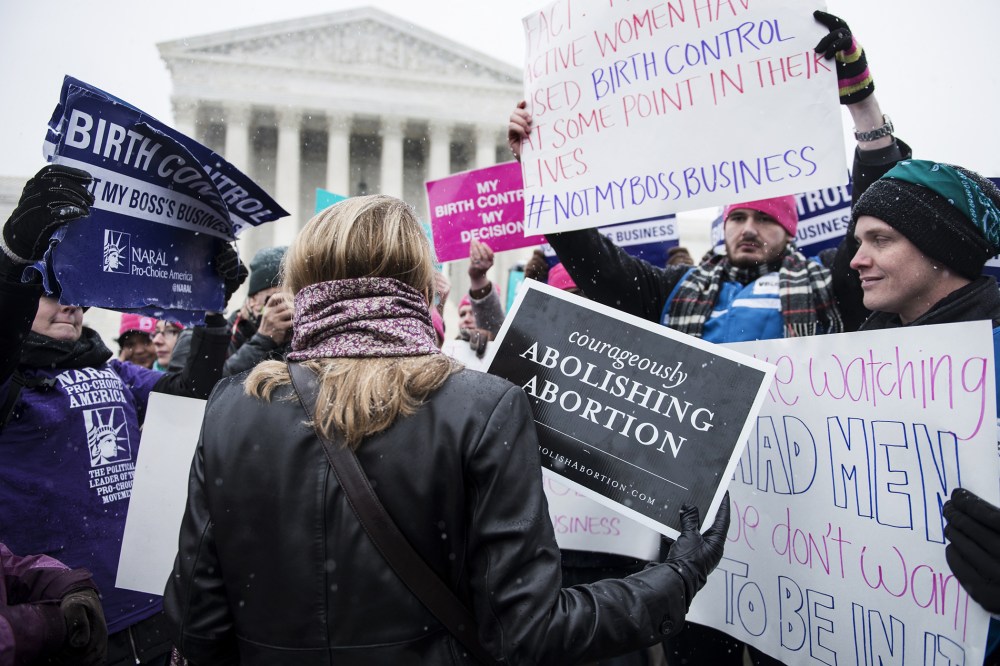Hobby Lobby, the corporation suing the U.S. government on the grounds that providing its employees with health insurance violates its owners’ religious beliefs by forcing them to cover the cost of contraception, has invested millions in the pharmaceutical firms that produce contraception and abortion drugs the company’s owners consider to be abortifacients.
“If Hobby Lobby in fact invests a lot of money in employer 401(k) matches in companies that manufacture such drugs, that should significantly weaken Hobby Lobby’s claim that the contraception mandate imposes a substantial burden,” says Samuel Bagenstos, a former Obama administration Justice Department official and a law professor at the University of Michigan.
That breathtaking scoop was reported by Mother Jones earlier this week. The magazine found that Hobby Lobby’s 401(k) employee retirement plans had invested at least $73 million dollars in drug companies that produce contraception and abortion drugs. Hobby Lobby could have turned to investment firms that specialize in “faith-based investing” and avoided capitalizing the companies they say create products they find morally objectionable, but they didn’t.

Hobby Lobby, a craft store chain, and Conestega Wood, a custom kitchen cabinet manufacturer, are arguing before the Supreme Court that the Affordable Care Act, which compels insurance companies to include contraception in their health care plans, places a “substantial burden” on the owners’ “sincerely held” religious beliefs, violating the Religious Freedom Restoration Act.
“The fact that Hobby Lobby retirement funds are heavily invested in companies that make Plan B and Ella does raise questions about the sincerity of their religious opposition to having insurance companies provide those same drugs,” says Caroline Mala Corbin, a law professor at the University of Miami.
Unfortunately for supporters of Obama’s healthcare law, the news likely comes too late to matter to the high court’s deliberations, because Hobby Lobby’s investments are not part of the factual record before the court.











